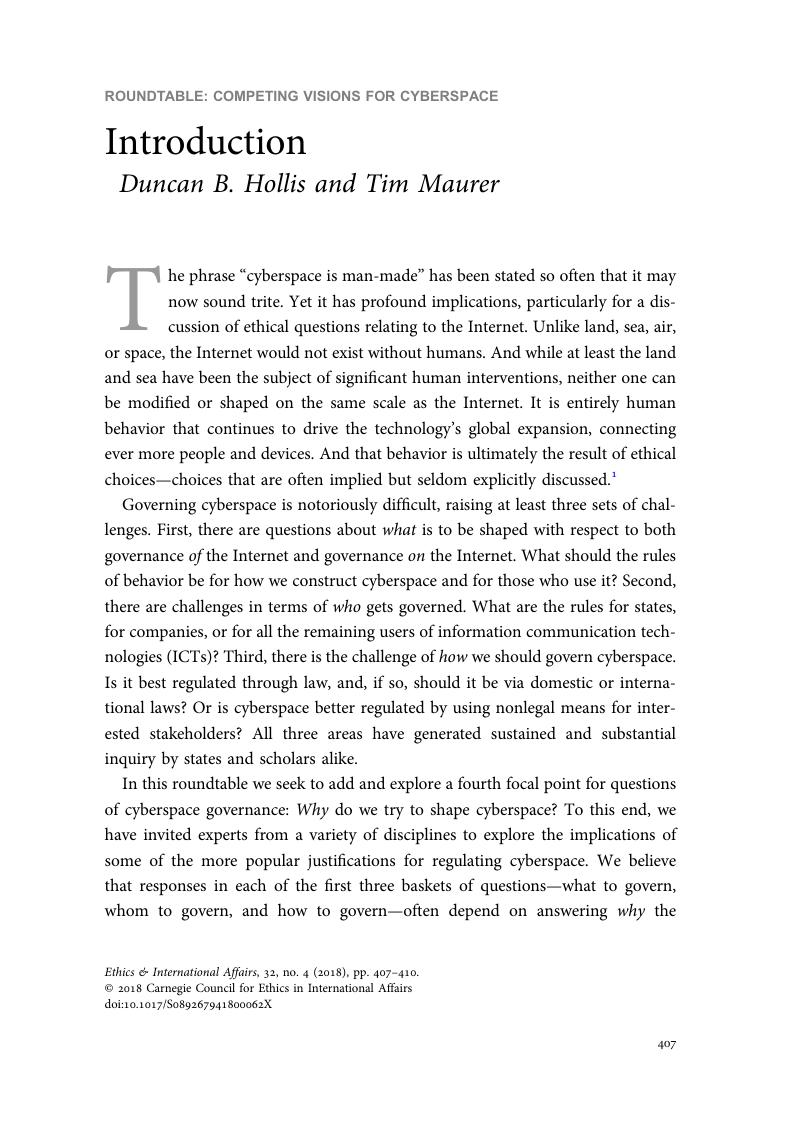No CrossRef data available.
Article contents
Introduction
Published online by Cambridge University Press: 07 December 2018
Abstract

- Type
- Roundtable: Competing Visions for Cyberspace
- Information
- Copyright
- Copyright © Carnegie Council for Ethics in International Affairs 2018
References
NOTES
1 Some scholars, such as Harvard Law School professor Jonathan Zittrain, have dedicated monographs to these questions, peeling away the various layers of ethical choices embedded in the creation of hardware and software, while also making an ethical argument in furtherance of the Internet's openness and “generativity.” See Zittrain, Jonathan, The Future of the Internet and How to Stop It (New Haven, Conn.: Yale University Press, 2008)Google Scholar. Others, like Evgeny Morozov, offer a more skeptical view of the technology's promises. See Morozov, Evgeny, The Net Delusion: The Dark Side of Internet Freedom (New York: PublicAffairs, 2011)Google Scholar. Such in-depth analytical and ethical treatments of the Internet remain exceptional, however.
2 Jean-Luc Picard, in “Symbiosis,” Star Trek: The Next Generation, season 1, episode 21, directed by Win Phelps, aired April 18, 1988.
3 See Sarah McKune, “An Analysis of the International Code of Conduct for Information Security,” Citizen Lab, available at openeffect.ca/code-conduct/.
4 Andrea Peterson, “The NSA is Trying to Crack Tor. The State Department Is Helping Pay for It,” Washington Post, October 5, 2013, www.washingtonpost.com/news/the-switch/wp/2013/10/05/the-nsa-is-trying-to-crack-tor-the-state-department-is-helping-pay-for-it/?utm_term=.029a46b2157c.
5 See for example Rawls, John, A Theory of Justice (Cambridge, Mass.: Harvard University Press, 2009)Google Scholar; and Pogge, Thomas W., World Poverty and Human Rights: Cosmopolitan Responsibilities and Reforms (Cambridge, U.K.: Polity Press, 2002)Google Scholar.




